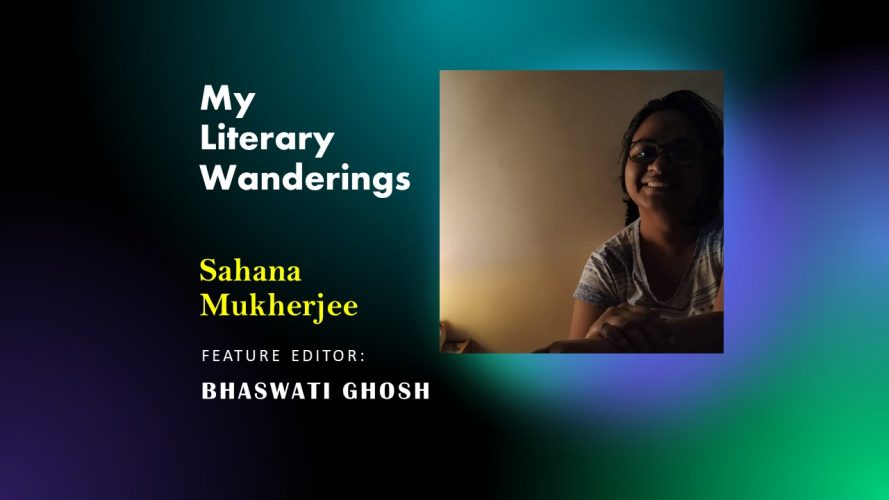I used to tiptoe around mornings; precariously stepping over pieces from previous nights. It felt like trudging through a dimly-lit tunnel, regardless of the time of day; a place where there was light but not enough to see what you were stepping on, who might be coming from the other side, or at your own shadow, and wonder whether it was you at all.
It was in middle school that I wrote my first poem – I forget now what I called it. My mother was my first audience. Even as my school performance continued to drop and my mother had little to look forward to, she always beamed at my work! That’s how I started penning down poems prolifically in a diary. I’d take it to school, show off the poems to my closest friend, who patiently read through my “love poems” and genuinely held them in high regard – thanks to the innocent loyalties of adolescent friendships. Those early poems, as they generally are, were the most atrocious as well as the most innocent ones I wrote. My “love poems” were written passionately for one person alone – the recipient sat a few benches away from me in the classroom. On one of the least pleasant days of our lives, one such poem made its way into the hands of their parents. The fear of being caught with a “love poem” in one’s school trouser pocket was too real for a fourteen-year-old. It had terrible consequences that shoved us into the dark. Love was nipped in the bud.
The words grew, unaffected; from love to tender heartbreaks to more somber problems at home, which only made my poems more and more ‘grim, dark, and hopeless’, to summarize the sentiment shared by several well-meaning adults. In high school, I started reading poetry a lot more than I previously did and began to work on the craft of writing. The Statesman used to have a section dedicated to the work of school students. The librarian at the new “big school” I managed to get through suggested that I should send them my work. The librarian was indeed a kind lady and would often let me and my friend stay back in the library a bit longer than usual. There, in one of the oldest school libraries of Kolkata with a stone floor and wooden stairs, one could write the most heart-wrenching of poems. One day, as I approached my house on my way back from school, our neighbor excitedly waved at me from their verandah, congratulating me for the publication of my poem. The joy I felt was indeed incomparable, but now I wonder what it was directed at; my first publication or the thought of my father stepping outside with the highlight of his day’s news and sharing it with all and sundry – Baba doing what he did best.
The joy of publication is immense and luxurious. My first few publications were reassuring; they made a disturbed undergraduate realize that not every coveted thing in life could be wrenched away from her. Rejections were difficult as they are for everyone, but did not impede my writing. As long as I could keep writing, I knew I was on top of it. Until, that is, a few rejections went up my spine, trying to bend it a little. With a slightly bent spine, the act of writing poetry became far less spontaneous and more twisted and dense.
Those were certainly days when words flowed easily and incessantly. It was exciting to get a poem written – any and every situation would spark an idea for one. With time, I find the act of writing a poem electrifying. Slowly, over days and weeks, the writing goes on, as I nitpick every metaphor, every line break, every concluding phrase. Very rarely now do I manage to write a poem in one go, and very few things in life now bring the satisfaction of a poem well finished. Try as I may, I still fail miserably at the naming process – coming up with a title that has a subtle yet remarkable connection with the text; if that is indeed the purpose of a title, I don’t know. I flounder through.
However, what I’ve increasingly come to realize is that perhaps the most difficult part of the writing process is to deal with the unannounced paralysis that sets in on the oddest of days, seizing the words, the fingers, and the heart, unawares. To let go of a poem as it is, incomplete, out of sync, and retain the hope of starting another one, more often than not, with the remnants of that which refuses to be finished is still an insurmountable wall for me.
Sahana Mukherjee is a poet from Kolkata. She is pursuing a Ph.D. in the Department of Literature, Drama and Creative Writing, University of East Anglia. She won a Charles Wallace Fellowship in Creative Writing at the University of Edinburgh in 2017. Writers Workshop published her debut book of poems, August Ache in 2019. Her poems have also appeared in several journals and anthologies.









Add comment